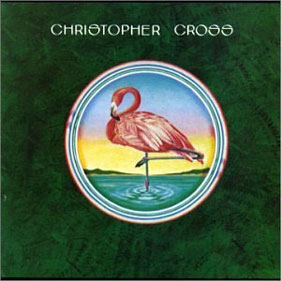
Christopher Cross is the debut studio album by American singer-songwriter Christopher Cross. It was released on December 27, 1979, by Warner Bros. Records. Produced by Michael Omartian and recorded in mid-1979, the album was one of the first in popular music to be digitally recorded, utilizing the 3M Digital Recording System.

Live/Dead is the first official live album released by the rock band Grateful Dead. Recorded over a series of concerts in early 1969 and released later the same year, it was the first live rock album to use 16-track recording.

"What's the Frequency, Kenneth?" is a song by American alternative rock band R.E.M. from their ninth studio album, Monster (1994). The song's title refers to an incident in New York City in 1986 in which two then-unknown assailants attacked journalist Dan Rather while repeating "Kenneth, what is the frequency?"

Back in '72 is the sixth studio album by American rock singer-songwriter Bob Seger, released in 1973. It was the first new album on Seger's manager Punch Andrews' label, Palladium Records, to be released under their distribution deal with the Reprise division of Warner Bros. Records and one of three early Seger albums that has never been reissued on CD.
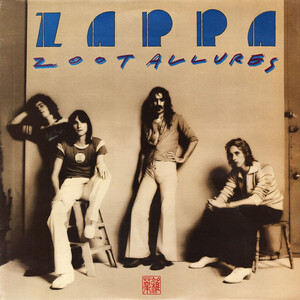
Zoot Allures is the 22nd album by the American rock musician Frank Zappa, released in October 1976 and his only release on the Warner Bros. Records label. Due to a lawsuit with his former manager Herb Cohen, Zappa's recording contract was temporarily reassigned from DiscReet Records to Warner Bros.

"Bang and Blame" is a song by American alternative rock group R.E.M. It was released as the second single from their ninth studio album, Monster (1994), on October 31, 1994 by Warner Bros. Records. The song was R.E.M.'s last to reach the top 40 on the US Billboard Hot 100, peaking at number 19, and was also their last number-one single on the Billboard Modern Rock Tracks chart. The single reached number one in Canada—R.E.M.'s only single to do so—and peaked inside the top 40 on the charts of Australia, Belgium, Finland, Iceland, Ireland, the Netherlands, New Zealand, and the United Kingdom.

"Fire" is a song by Irish rock band U2. It is the fifth track on the band's 1981 album, October, and it was released in July 1981 as the album's first single.
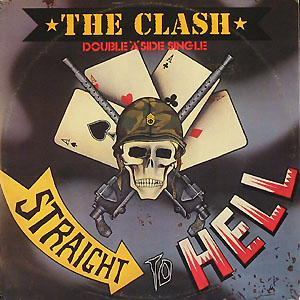
"Straight to Hell" is a song by the Clash from their album Combat Rock. It was released as a double A-side single with "Should I Stay or Should I Go" on 17 September 1982 in 12" and 7" vinyl format.

"Who Wants to Live Forever" is a song by the British rock band Queen. A power ballad, it is the sixth track on the album A Kind of Magic, which was released in June 1986, and was written by lead guitarist Brian May for the soundtrack to the film Highlander. Queen was backed up by an orchestra, with orchestrations by film score composer Michael Kamen. The song peaked at No. 24 in the UK charts. In 1991, it was included in the band's second compilation album, Greatest Hits II.
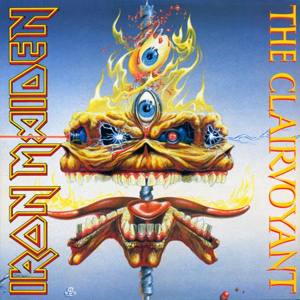
"The Clairvoyant" is a song by the English heavy metal band Iron Maiden. It is the band's nineteenth single and the third from their seventh studio album, Seventh Son of a Seventh Son (1988). The single, which was also released as a clear vinyl, peaked at number six in the British charts. It contains three live performances from Maiden's 1988 headlining performance at the Monsters of Rock festival in Donington Park.

Highly Strung is the sixth studio album by English guitarist and songwriter Steve Hackett. "Cell 151" was a minor hit from the album, and charted in the UK. Added to Hackett's band was drummer Ian Mosley, who would join Marillion in 1984. This was Hackett's final studio release for Charisma.

"Everywhere" is a song by British-American rock band Fleetwood Mac from their 14th studio album, Tango in the Night (1987). The song was written by Christine McVie, who also performed lead vocals, and produced by Lindsey Buckingham and Richard Dashut. In the United States, "Everywhere" was released in November 1987 as the album's fourth single, while in the United Kingdom, it was issued on 21 March 1988 as the album's fifth single.

"Sometimes a Fantasy" is a song by Billy Joel, released in 1980 as the last single from his seventh studio album Glass Houses. The single peaked at No. 36 on the US Billboard Hot 100. The song is a "melodic, fast paced rocker" and starts with Joel dialing a number on a telephone.
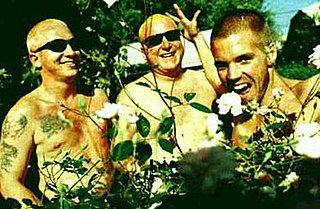
Sublime is an American band from Long Beach, California that plays a mix of ska, punk, and reggae. Formed in 1988, the band's original lineup consisted of Bradley Nowell, Eric Wilson (bass), and Bud Gaugh (drums). Lou Dog, Nowell's dalmatian, was the mascot of the band. Nowell died of a heroin overdose in 1996, resulting in the band's breakup. In 1997, songs such as "What I Got", "Santeria", "Wrong Way", "Doin' Time", and "April 29, 1992 (Miami)" were released to U.S. radio.

Jakob Bro is a Danish guitarist and composer.
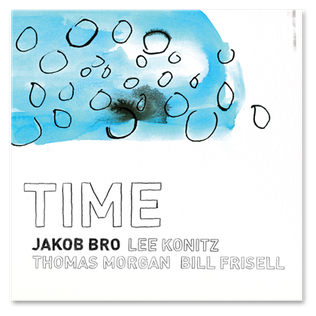
Time is a studio album by Danish jazz guitarist Jakob Bro. The album is the second part of a trilogy which also includes Balladeering (2009) and December Song (2013). The trilogy was nominated for the Nordic Council Music Prize 2014.

¡Tré! is the eleventh studio album by the American rock band Green Day. It is the third and final installment in the ¡Uno!¡Dos!¡Tré! trilogy, a series of studio albums that were released from September to December 2012. Green Day started recording material for the album on February 14, 2012, and finished on June 26, 2012. ¡Tré! follows the power pop style of ¡Uno!, and the garage rock feel of ¡Dos!. The album's title is a nod to the band's drummer Tré Cool, who turned 40 years old two days after the release. Cool is also featured on the album's cover. It is the band's last album with touring guitarist Jason White joining the band in the studio as a session member.

Demolicious is a compilation album by American rock band Green Day. It was released on Record Store Day on April 19, 2014. It is a collection of demo versions of songs from their ¡Uno! ¡Dos! ¡Tré! album trilogy. The album also includes the previously unreleased "State of Shock" and an acoustic version of "Stay the Night". It was released on double vinyl, CD, and cassette tape. The cover art was designed by comic book artist Tom Neely with Kristina Collantes.

"Skies the Limit" is a song by British-American band Fleetwood Mac from their album Behind the Mask. In the US, the song was released as the album's second single in July 1990. Four months later, the song was issued as the album's third single in the UK. While the single did not chart on the US Billboard Hot 100, it did reach number 10 on the Billboard Adult Contemporary chart and number 40 on the Mainstream Rock chart. The moderate success of "Skies the Limit" and "Save Me" helped to push their parent album into the US and Canadian top 20, albeit only briefly.

Songs of Surrender is an album of re-recorded songs by Irish rock band U2. Produced by guitarist the Edge, it was released on 17 March 2023 on Island Records and Interscope Records. Largely the effort of the Edge and lead vocalist Bono, the album comprises re-recorded and reinterpreted versions of 40 songs from the group's back catalogue, many in stripped-down and acoustic arrangements. The album is a companion to Bono's memoir, Surrender: 40 Songs, One Story (2022), which was structured into 40 chapters titled after U2 songs. Rearranged versions of the songs were first included in the audiobook edition of the memoir, and were performed by Bono during the book's promotional tour.




















